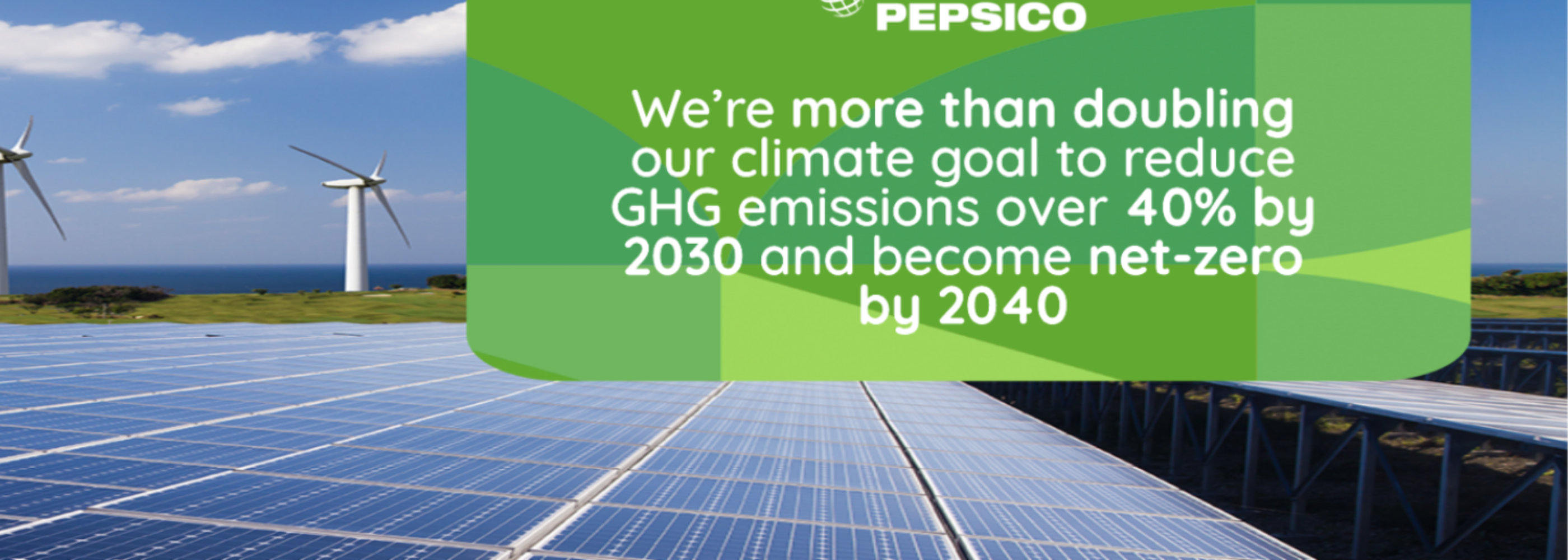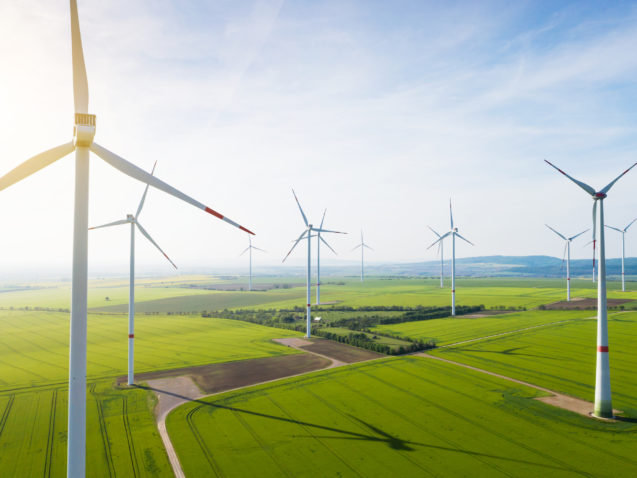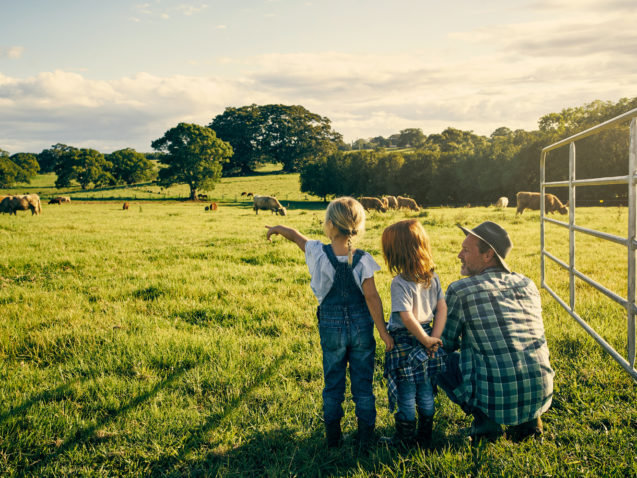As part of our #FoodFuture project we’re asking how we can deliver truly sustainable food systems. We’re listening to farmers, consumers, policymakers, businesses, NGOs, academics and others. By listening and working together, we will create a better future. This month we’re looking at climate action and we spoke to Paul Skehan from PepsiCo.
Concentrations of greenhouse gas emissions in our atmosphere have reached historic levels. The severe impacts of climate change require faster and bolder action from all of us, less blah blah and more act, act. Being a global food and beverage leader comes with responsibility. It’s a responsibility PepsiCo – and the food and beverage sector – takes very seriously.
At the heart of the EU’s Green Deal is the objective to become a net-zero economy by 2050, with an intermittent target to reduce at least 55% of GHG emissions by 2030. To achieve this goal, a bundle of EU policies related to climate and energy are now being revised: the “Fit for 55” package. How is the food sector responding? How are companies like PepsiCo contributing?
To become climate neutral, ALL sectors need to take decarbonization measures. In the food and drink sector, value chains are very complex and each stage contributes to GHG generation. That is why I very much welcome the bold move our sector has taken towards a collaborative approach towards the decarbonisation of food production and consumption.
In order to assist food producers with their journey to achieve net-zero emissions by 2050, consulting firm Ricardo plc has developed a roadmap on behalf of FoodDrinkEurope, earlier this year. The roadmap begins by calculating a 2020 baseline and identifies the likely barriers and opportunities for success. Secondly, it details a comprehensive overview of decarbonisation actions that can be applied all across the value chain. These measures will assist producers to identify where we can take actions (e.g. using biobased fuels or renewable energy, heat recovery, etc.) to reduce carbon emissions and also help to project which impact those actions will have. A lot of hard work from the sector went into the creation of this roadmap, and it is great to see how this work will help businesses on their journey to achieve net-zero emissions, regardless the scope of the enterprise.
At PepsiCo, we want to reduce absolute GHG emissions across our direct operations (Scope 1 and 2) by 75% and across our indirect value chain (Scope 3) by 40% by 2030 (against a 2015 baseline). We expect this to result in a reduction of more than 26 million metric tons of GHG emissions – or the equivalent of taking more than five million cars off the road for a full year. Our approach is centred around mitigation and resilience, and focuses on areas where we can have the greatest end-to-end impact: like agriculture, packaging, distribution and operations.
PepsiCo is a business based on agriculture – which accounts for approximately one quarter of worldwide GHG emissions and one third of PepsiCo’s emissions. We must therefore further scale our sustainable agriculture and regenerative practices that lead to emissions reduction and sequestration, as well as better yields, improved soil health and biodiversity, decreased deforestation and increased productivity for farmers.
Concerning our packaging, we are driving to reduce virgin plastic use and increase recycled content in packaging. For instance, we’re steadily increasing our use of rPET in Europe where eleven countries are aiming to increase use of 100% rPET in our Pepsi brand by as early as next year.
We also aim to maximize efficiency in our supply chain through environmentally sustainable manufacturing, warehousing, transportation and distribution, by adopting zero- and near-zero-emission technologies. This is where the roadmap from FoodDrinkEurope will help us gain new insights.
These last few years, I see more and more companies like PepsiCo setting ambitious goals and investing significantly in efforts to reduce the carbon footprint of their production process. It is inspiring to see how the food and beverage sector has put this issue so high on the agenda, but we can’t do it alone. In order to become a net-zero sector we need help from many others, from consumers, retailers, farmers… and from policy makers.
The ‘Fit for 55’ package is a first and crucial step in reaching the EU’s goal to become climate neutral. My sincere hope, then, is that the European Commission will provide a stable policy environment that strongly incentivizes this shift towards greener energy sources, renewable and more sustainable transportation, and uptake of zero emission technologies.
Climate change impacts us all, and it is by working with each other that we will make a difference.




